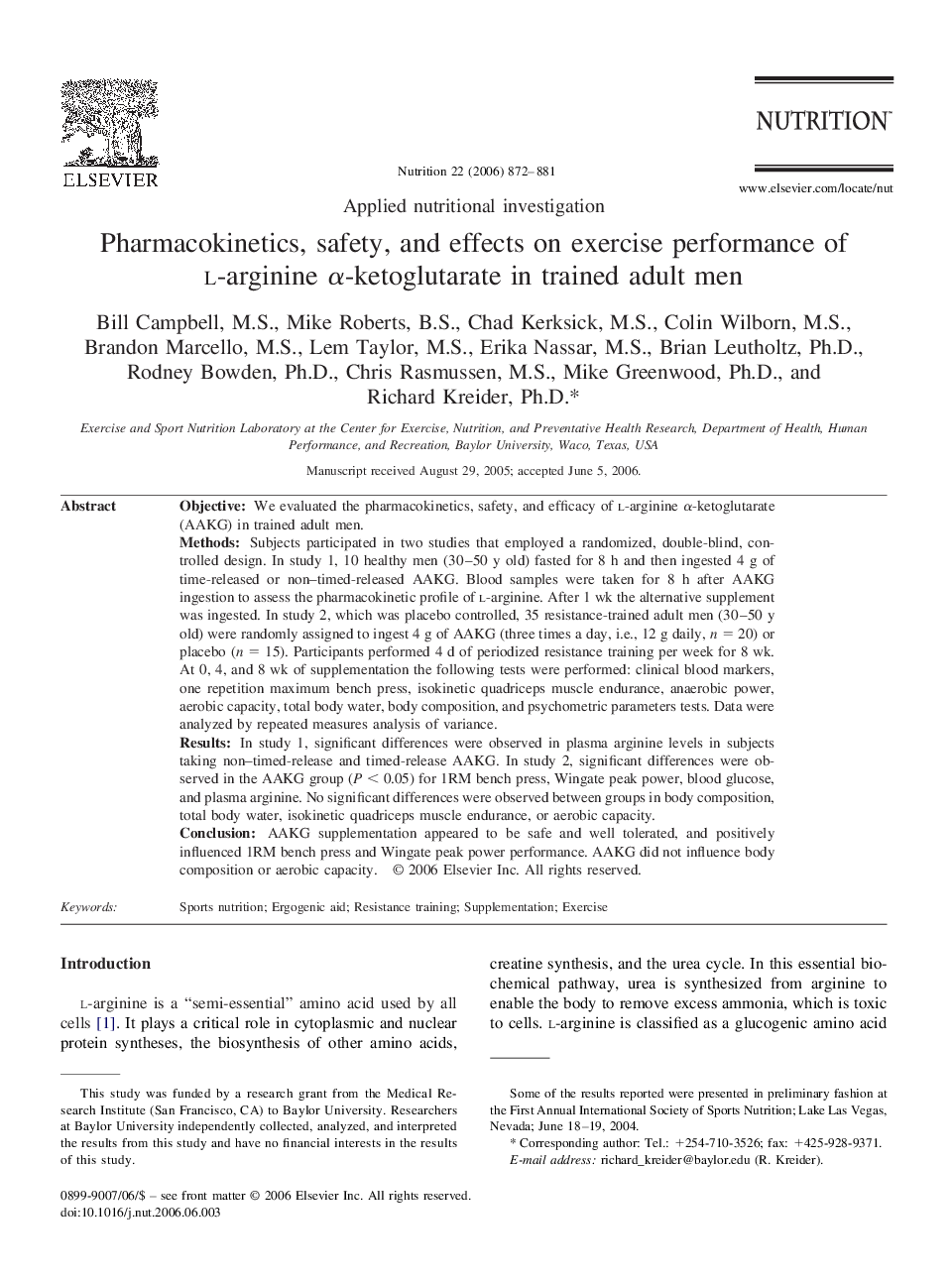| Article ID | Journal | Published Year | Pages | File Type |
|---|---|---|---|---|
| 3277772 | Nutrition | 2006 | 10 Pages |
ObjectiveWe evaluated the pharmacokinetics, safety, and efficacy of l-arginine α-ketoglutarate (AAKG) in trained adult men.MethodsSubjects participated in two studies that employed a randomized, double-blind, controlled design. In study 1, 10 healthy men (30–50 y old) fasted for 8 h and then ingested 4 g of time-released or non–timed-released AAKG. Blood samples were taken for 8 h after AAKG ingestion to assess the pharmacokinetic profile of l-arginine. After 1 wk the alternative supplement was ingested. In study 2, which was placebo controlled, 35 resistance-trained adult men (30–50 y old) were randomly assigned to ingest 4 g of AAKG (three times a day, i.e., 12 g daily, n = 20) or placebo (n = 15). Participants performed 4 d of periodized resistance training per week for 8 wk. At 0, 4, and 8 wk of supplementation the following tests were performed: clinical blood markers, one repetition maximum bench press, isokinetic quadriceps muscle endurance, anaerobic power, aerobic capacity, total body water, body composition, and psychometric parameters tests. Data were analyzed by repeated measures analysis of variance.ResultsIn study 1, significant differences were observed in plasma arginine levels in subjects taking non–timed-release and timed-release AAKG. In study 2, significant differences were observed in the AAKG group (P < 0.05) for 1RM bench press, Wingate peak power, blood glucose, and plasma arginine. No significant differences were observed between groups in body composition, total body water, isokinetic quadriceps muscle endurance, or aerobic capacity.ConclusionAAKG supplementation appeared to be safe and well tolerated, and positively influenced 1RM bench press and Wingate peak power performance. AAKG did not influence body composition or aerobic capacity.
